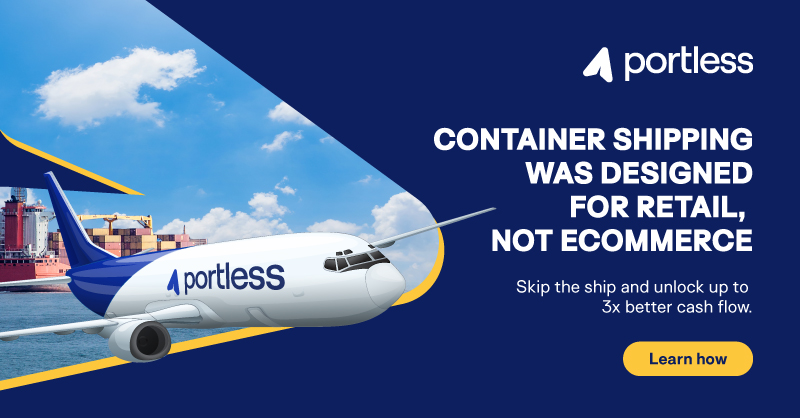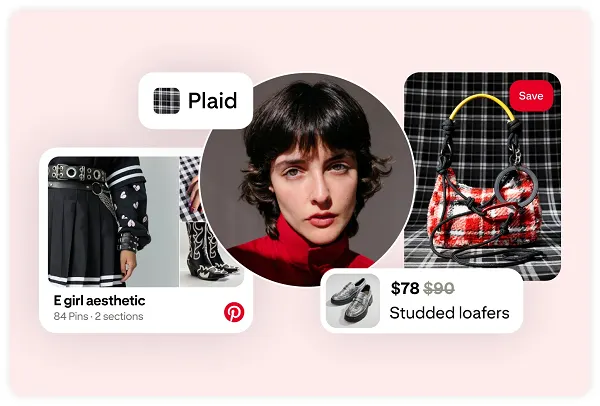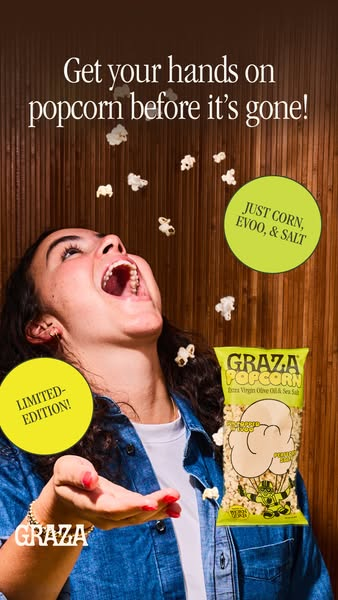The Anti-Hero SKU Strategy
🚫 Single-shot launches lose; modular shells keep winning, Reddit and Pinterest are Redefining Search and Shopping, and more!


Howdy readers 🥰

In this newsletter, you’ll find:
🚫 The Anti-Hero SKU Strategy
🔎 Reddit and Pinterest Are Redefining Search and Shopping
🏆 Ad of the Day
If you’re new to ScaleUP, then a hearty welcome! You and 50k+ CEOs, CMOS, and marketers have reached the right place. Let’s get into it, shall we? Oh! Before you forget, if someone forwarded this newsletter to you, don't forget to subscribe to our newsletter so you never miss out!

Together with Portless
📦 Still Waiting 60–90 Days for Inventory? You’re Losing BFCM Sales

This Black Friday/Cyber Monday season, every day of delay costs revenue.While competitors wait three months for shipments, your shelves stay stocked and campaigns keep running when you partner with Portless.
Here’s what Portless unlocks right now:
✈️ Ship directly from the factory to customers in just 6 days
📦 Restock best-sellers in 3–5 days (not 3 months)
🚀 Launch and test new products instantly without warehousing risk
💸 Cut lead times by 90% and free up 30–40% more cash every month
Instead of waiting a quarter to break even, Portless brands shrink CAC payback to 7–14 days, recycling cash into ads, launches, and scale, exactly when holiday demand peaks.
Speed isn’t just an advantage for BFCM; it’s the moat that decides who wins the season.
Get a custom quote for your brand now →

🚫 The Anti-Hero SKU Strategy
Most brands still think in “hero SKU” logic: launch one perfect product, then scale it through variations or bundles. But top Amazon operators are shifting toward modular SKU stacks, where multiple ASINs are launched in parallel using the same inventory backend, but with intentionally distinct names, price tiers, and angles tailored to different buyer intent.
It’s not about color or size variants. It’s about micro-positioned, brand-distinct SKUs with differentiated keywords, stories, and implied use cases, even when the formula inside is identical.
From Products to Positioning Shells
Modular SKU stacks work because they separate what the product is from what it signals to different segments:
- A supplement brand can launch:
- “Hormone Reset Stack” (for late-30s women)
- “Gut Repair Kit” (for bloat-aware men)
- “Clean Core Starter” (for first-time biohackers)
All 3 can use the same fulfillment and even share 90% of their copywriting DNA.
Each SKU becomes a controlled narrative shell that earns its own organic visibility, ad relevance, and browse carousel slot. You’re not “splitting traffic”, you’re multiplying footholds in Amazon’s ecosystem.
Operationally Simple, Algorithmically Explosive
Unlike DTC, Amazon rewards ASIN density inside category carousels. More SKUs = more coverage across:
- “Related to This Item” slots on competitor PDPs
- “Customers Also Viewed” algorithm chains
- Keyword-triggered sponsored brands split-tested by story
- A/B organic discoverability by price anchoring
And because you control the backend logic, you don’t need 5 warehouses or different formulas. You’re just spinning new launch points from the same production line, like SaaS brands shipping new features without rewriting their entire codebase.
Modular SKUs Also Win Publisher Placements
This season, publishers are actively sourcing Amazon-native SKUs for gift guides, reviews, and themed roundups. Levanta is helping a select group of 7–9 figure brands land modular SKUs in multiple placements at once, each SKU narrative acting as its own pitch. You can see if your brand qualifies for Q4-ready exposure across high-converting channels.
If You Don’t Do This…
- You’ll keep launching with “one shot” energy, while your competitors stack the deck.
- You’ll burn ad dollars proving a single hook works… instead of testing 5 stories in parallel.
- You’ll lose discoverability to brands treating every SKU like a campaign of its own.
You don’t need new products to grow. You need better SKU architecture.

🔎 Reddit and Pinterest Are Redefining Search and Shopping
According to data from SEMRush, Reddit’s AI-driven growth and Pinterest’s report shopping model are reshaping how people find information and make purchase decisions. Both platforms now play an outsized role in AI search results and consumer buying journeys.

The Breakdown:
1. Pinterest’s Curation Power - According to Pinterest’s report, shoppers cut through choice overload by showing only the most relevant products. Around 90% of users find items that match their tastes, and 39% of Gen Z start searches on Pinterest. Shoppers are 59% more likely to buy compared to other social platforms.
2. Reddit’s Traffic Surge - Reddit is now the second most visited site in the U.S. and third in Canada, driven by AI chatbot referrals and a content-sharing agreement with Google that places Reddit conversations prominently in AI search overviews.
3. Human Insight Advantage - Its authentic, experience-based discussions make Reddit a trusted source for product advice and recommendations, pushing it to the center of Generative Engine Optimization (GEO) strategies for brands seeking visibility in AI-powered discovery.
Reddit’s surge highlights how authentic, community-driven content is shaping AI-powered discovery. Using Reddit’s Brand Playbook and Pro Trends to build a credible presence, combined with Pinterest’s curation insights to surface products in AI search, turns high-intent discovery into measurable conversions without relying on traditional ad tactics.

🏆 Ad of the Day

What Works and Insights
1. Fun urgency hook – The line “Get your hands on popcorn before it’s gone!” uses scarcity to create quick action while keeping the tone playful. Brands can strengthen this move by pairing urgency with light-hearted visuals or copy so the message feels exciting, not pushy.
2. Clean ingredient trust – Highlighting “Just Corn, EVOO, & Salt” taps into the clean-label trend and builds instant credibility. Brands can double the effect by showing a short origin story or sourcing callout to reassure health-minded shoppers.
3. Joyful lifestyle shot – The image of popcorn flying and a smiling customer sells the fun of the snack as much as the product itself. Experts can replicate this by capturing natural, in-the-moment reactions that communicate enjoyment beyond the food.
Playful urgency, simple ingredients, and an authentic lifestyle moment create a snack ad that feels both exciting and trustworthy, driving impulse buys while building brand confidence.

Advertise with Us
Wanna put out your message in front of over 50,000 best marketers and decision makers?

We are concerned about everything DTC and its winning strategies. If you liked what you read, why not join the 50k+ marketers from 13k+ DTC brands who have already subscribed? Just follow this.
At ScaleUP, we care about our readers and want to provide the best possible experience. That's why we always look for ways to improve our content and connect with our audience. If you'd like to stay in touch, be sure to follow us EVERYWHERE🥰
Thanks for your support :) We'll be back again with more such content 🥳

